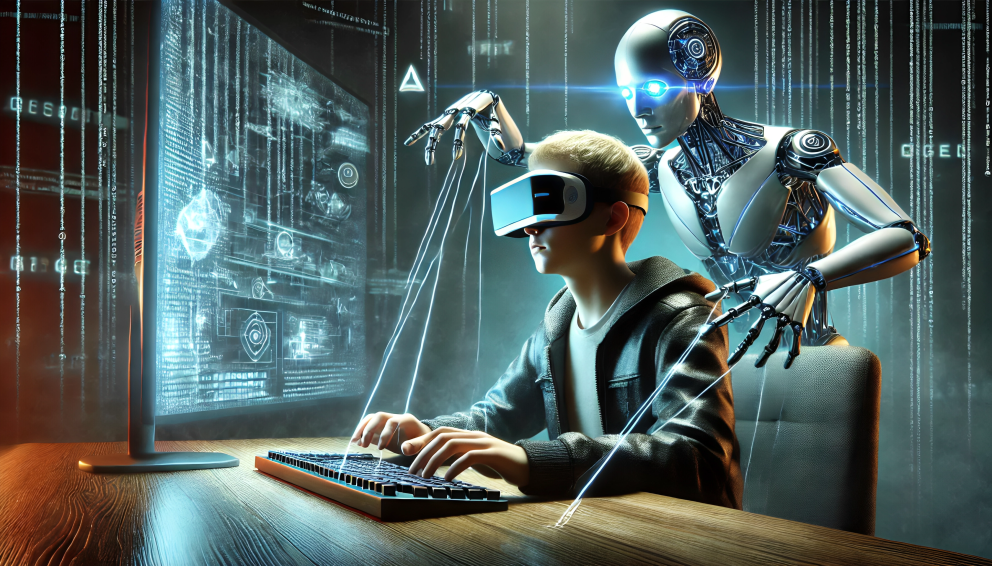Is Artificial Intelligence Affecting Critical Thinking?


News:
According to a 2024 study published in the journal Societies, frequent reliance on AI tools correlates with a decline in independent problem-solving skills. Similarly, research by Edutopia emphasizes the need for AI literacy in education to prevent cognitive dependency. Experts stress responsible AI integration to balance technological efficiency with critical thinking development.
Arguments in Favor of AI Affecting Critical Thinking
- Dependence on AI Reduces Independent Analysis
As AI tools become more integrated into daily life, individuals rely on them for decision-making, reducing their ability to think critically. When AI provides instant answers, people are less likely to analyze problems deeply.- Example: Students using ChatGPT for essay writing may skip brainstorming and structuring arguments, weakening their analytical skills over time.
AI Encourages Passive Consumption of Information
AI-driven content recommendations on platforms like YouTube and TikTok create echo chambers, where users are only exposed to information that aligns with their existing beliefs, limiting diverse perspectives.Example: Social media algorithms prioritize engagement over truth, leading users to consume biased information without questioning its validity.
Automation of Cognitive Tasks Leads to Skill Erosion
Tasks that once required human effort, like problem-solving, research, and fact-checking, are now automated. Over time, individuals lose proficiency in these skills.- Example: GPS navigation has reduced people’s ability to read maps and navigate independently, showing how automation can degrade cognitive abilities.
AI Can Manipulate Thought Processes
Sophisticated AI models can shape public perception through deepfake content, biased news, and personalized misinformation, influencing people’s opinions without them realizing it.Example: AI-generated fake news in the 2024 elections misled voters, showing how AI can undermine independent thinking.
Overreliance on AI in Education Weakens Cognitive Development
Students using AI-based tutoring may get instant solutions without engaging in critical thinking. This reliance can hinder problem-solving skills and intellectual curiosity.- Example: A 2023 study by Stanford found that students using AI assistants for math struggled more in problem-solving compared to those who worked through problems manually.
AI Reduces Creativity and Original Thought
AI-generated content tempts individuals to reuse existing ideas rather than develop original solutions, stifling creativity and innovation.- Example: Writers relying on AI-generated text may struggle to develop unique storytelling styles, limiting artistic expression.
AI-Driven Decision-Making Can Promote Cognitive Laziness
As AI provides instant recommendations, people may blindly accept AI-driven conclusions without questioning or verifying their validity.Example: Business professionals using AI analytics may overlook flawed AI-generated projections, leading to costly errors.
Arguments Against AI Affecting Critical Thinking
AI Enhances Critical Thinking by Providing Diverse Perspectives
AI-powered tools can present multiple viewpoints on complex issues, helping users analyze situations more thoroughly and consider alternative arguments.Example: Debate AI models like IBM’s Project Debater provide structured pros and cons on controversial topics, encouraging users to think more critically.
- AI Assists in Research and Deep Learning
Instead of replacing critical thinking, AI accelerates the research process, allowing individuals to focus on deeper analysis rather than spending excessive time gathering information.- Example: Researchers using AI-driven data analysis can identify patterns faster, leading to more insightful conclusions.
- AI Encourages Curiosity and Inquiry
By answering complex questions, AI can spark curiosity and push users to explore topics further, leading to more engagement with critical thinking processes.- Example: Platforms like Wolfram Alpha provide step-by-step solutions, encouraging students to understand concepts rather than just memorize answers.
- AI Helps Overcome Cognitive Biases
Unlike humans, AI can analyze data objectively, reducing emotional biases in decision-making. By presenting evidence-based conclusions, AI helps people make rational choices.- Example: AI-assisted legal analysis tools help lawyers evaluate cases without being influenced by personal biases.
- AI Encourages Adaptive Thinking in a Digital Age
Rather than diminishing cognitive abilities, AI forces individuals to adapt and refine their thinking skills to work effectively with technology.- Example: Modern professionals use AI-driven tools for business strategy, requiring them to critically assess AI-generated insights before making final decisions.
- AI Facilitates Personalized Learning and Problem-Solving
AI-powered education tools adapt to students’ needs, helping them develop critical thinking skills by offering tailored challenges and solutions.- Example: AI tutoring platforms adjust question difficulty based on student performance, encouraging analytical thinking.
- AI Promotes Efficiency, Allowing More Focus on Complex Reasoning
AI automates mundane tasks, freeing up time for humans to focus on high-level critical thinking and strategic planning.- Example: Doctors using AI for diagnostics spend less time on routine analysis, enabling them to focus on complex medical cases.
Conclusion:
As AI continues to reshape cognitive processes, its influence on critical thinking remains a subject of debate. While AI enhances efficiency and provides diverse insights, overreliance may weaken analytical skills and independent reasoning. The solution lies in fostering AI literacy, ensuring individuals critically engage with AI-generated information rather than passively accepting it, ultimately preserving human intellectual depth in an increasingly automated world.